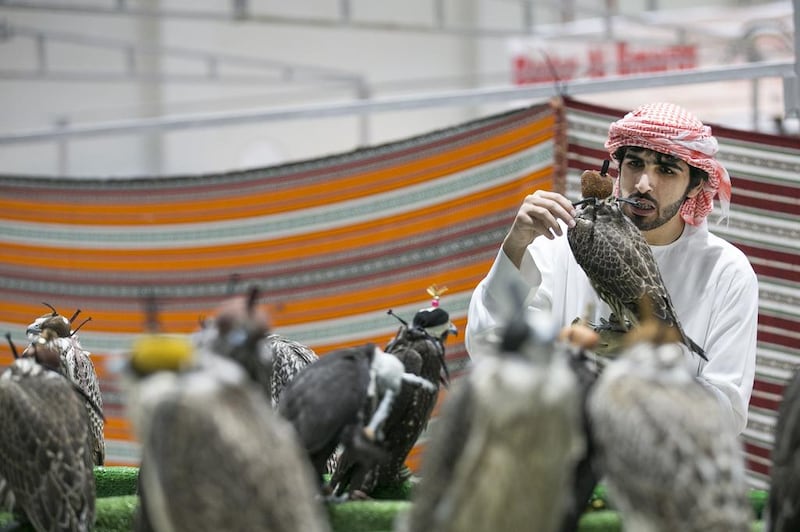Over the weekend, I spent a happy few hours wandering around the Adihex hunting show in Abu Dhabi. With my rural background, I always find something of interest, even if it only prompts a bit of nostalgia. Although some exhibitors said that business was quiet compared to previous years, there was, nonetheless, a respectable crowd of visitors, both adults and children.
For many children, I suspect, Adihex may be the nearest they get to an insight into country life and the rural environment. Plenty of youngsters were at the stand of the Environment Agency – Abu Dhabi, learning about coral reefs, the ghaf tree and Jebel Hafeet. At the stand of the International Fund for Houbara Conservation, the enclosure containing a few captive-bred birds was surrounded by fascinated kids.
The fund, I hear, is planning more in the way of public outreach. That’s important, because the houbara is a fundamental part of the UAE’s most favoured traditional pastime of falconry. Reaching out into the schools might also prevent a reoccurrence of a rather amusing incident at the fund’s stand at Adihex a year or two ago.
On that occasion, I was told, Sheikh Mohammed bin Zayed had spent some time being briefed on its captive breeding and release programme and looking at some of the houbara on display. As he was about to leave, a little girl came rushing up to greet him.
Greetings having been duly exchanged, he pointed to a houbara and asked the little girl if she knew what it was called.
“A duck,“ she proudly replied.
The fund promptly set about examining ways of enhancing its outreach programme.
At least, however, the little girl knew that it was a bird.
A few months ago, a young Emirati colleague was asked at an office meeting to say what a houbara was. “A fish,“ she confidently responded.
In the process of the country’s rapid development, a large percentage of UAE citizens have lost their connection to rural life, whether in the deserts or mountains. They know nothing of hunting or of farming. The same is true of many expatriate kids.
There are, I am told, children living in big cities around the world who do not understand the link between milk and cows or between eggs and chickens. Domestic animals, apart from pets, farming and the countryside as a whole play no part in their lives.
_____________________
Read more from Peter Hellyer
[ Small-scale philanthropic initiatives do make a world of difference ]
[ Britain takes steps to tackle the scourge of extremism ]
[ Flower power and the possibilities of civic engagement ]
_____________________
There is plenty of evidence that many people in highly urbanised societies, adults as well as children, know little of the sources of much of the food they consume.
A department of agriculture study in the United States in the early 1990s found that nearly 20 per cent of the adults contacted didn’t know that hamburgers were made of beef. More curiously, in a recent study for the American dairy industry, it was found that 7 per cent of those taking part believed that chocolate milk comes from brown cows.
It’s easy to laugh at such surveys, but equally odd results can be found in other countries. It wouldn’t surprise me to find similar ignorance here, although Emirati children, perhaps with the opportunity to visit family-owned farms, may be slightly better informed. There’s certainly a need for more effective education about the sources of food and about the role that agriculture and animal husbandry play in our lives.
These issues are as relevant to the UAE as they are to other countries. With more and more people living in cities, knowledge of the countryside, from agriculture to its environment, begins to fade. We are all the poorer for that, and as ignorance grows, so the potential rises for serious policy errors.
Education, of course, should equip children and young adults with the intellectual and technological skills they need for life. It’s important, though, that they also learn about the nature of the world in which they live, chocolate milk, cows, houbara and all.
Follow The National's Opinion section on Twitter





